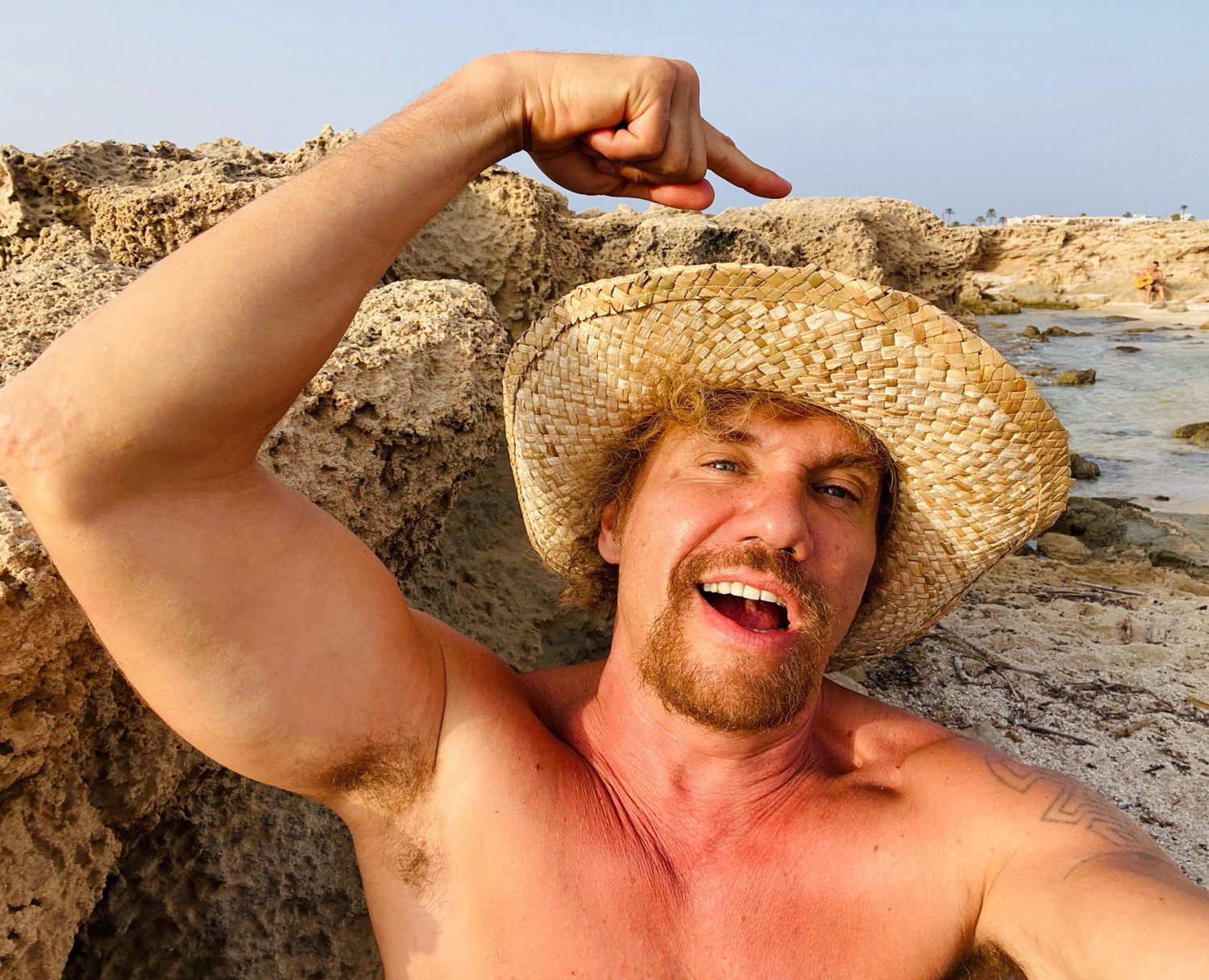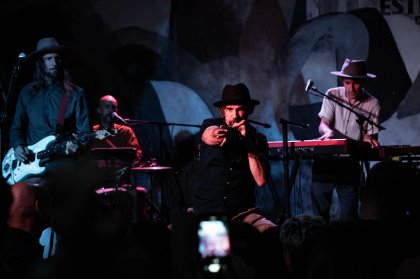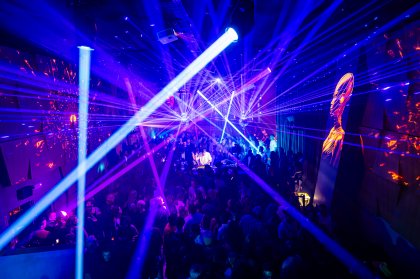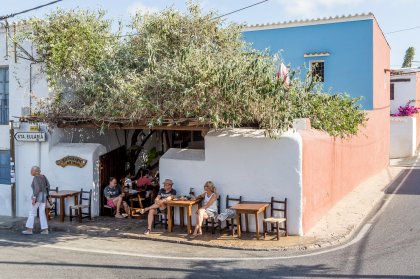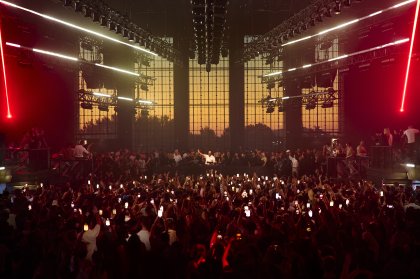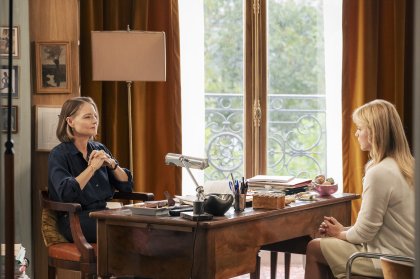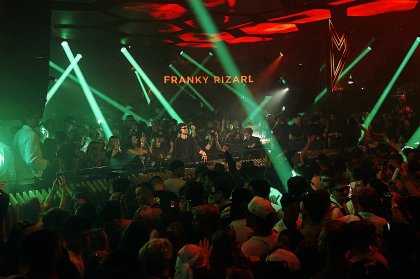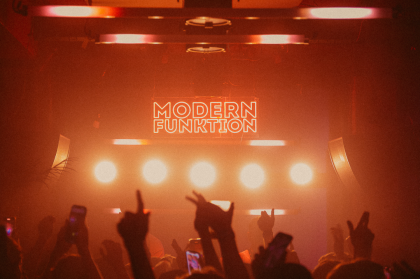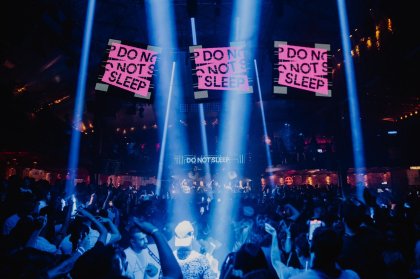Daniel Carbonell (Barcelona, 1972), better known as Macaco, is an artist who fuses roots rhythms with contemporary sounds, creating handcrafted music loaded with social consciousness. A committed activist for the environment and human rights, his work combines optimism, irony, and a universal message that invites both dancing and reflection.
The following interview was held just prior to his return to the garden of the multicultural hotspot Las Dalias (in San Carlos) to deliver another unforgettable performance for his multitude of fans in Ibiza.
1. How has your music evolved since your last album?
The new album drops in November. The previous one - which was about love relationships - was a break in my career. The new one is socially aware, ironic, and luminous; it features global roots music including upbeat, Rumba, Cumbia, Afro, Chacarera (a lively form of traditional folk music and dance from northwestern Argentina) and Boogaloo.
It focuses on handmade sounds - everything is played live and there’s no programming. The upcoming album is called “Futuro Ancestral” (Ancestral Future), and I’ll be presenting it live in November.
2. Your songs show strong social and environmental commitment. What causes motivate you today?
I always seek debate, to say what I feel. There’s no absolute truth in the world; no one is right all the time (as Dylan said). But silence is not an option in my career. Even if you can’t be 100% coherent in life, I try to look in the mirror every day to grow a little more, to recognise and reshape myself. I’m not just “like this, full stop.” I’m “like this, ...”
Yes, I’m an activist. I sing for the environment (real wealth is the land and sea), against environmental hypocrisy worldwide, for social rights, for Palestine (my heart is broken by this genocide), for the LGTBI community… for human rights. The world is being polarised and staying silent is to be compliant. In the coming years, humanity will face profound changes.
3. Many artists experiment with genre fusion. How would you describe your style today?
Songwriting and roots music with an antenna. For me, modernity lies in music played by musicians. There’s a strong movement right now towards music that is made by hand. Plastic music vs. handcrafted music.
4. How has the global situation influenced your creative process?
My music is entertainment but also awareness. Everything around me affects my songs. They make you dance, laugh, dream, cry, think, love… They don’t leave you indifferent - you either like them or you don’t - but they don’t go unnoticed.
5. Your lyrics often convey optimism and hope. Is this intentional or natural?
It’s natural and deliberate. I try to be what the Colombian writer Galeano called a “feeling-thinking” person. Then there’s non-violent struggle - the struggle of words.
6. How important is your message compared to the music itself?
It’s everything.
7. After so many years in music, is there a song you feel marked a turning point?
Many, all of them, and none in particular: ‘Mama Tierra’, ‘La Mano Levanta’, ‘Lo Quiero Todo’, ‘Blue’, ‘Diminuto Planeta Azul’, ‘Quiéreme Bien’, ‘Coincidir’, ‘Moving’, ‘Valientes’… ‘Ovejas Negras’…
8. How has your relationship with audiences changed with digital platforms?
Social media is a double-edged sword. I say what I think, even if they censor me. Live performances don’t lie.
9. Is there a future musical goal you haven’t shared yet?
Another project is coming: a band with three singers, three languages, an active meditation project, a film, an audiovisual label… They’re all alive already. And the new album in November is going to be a very important one in my career.
10. How do you balance experimentation with fans’ expectations?
Obviously, I like to please those who follow me, but there’s no rule - I never followed one. It has to move me first…otherwise, it doesn’t work. Otherwise, I’d be a hypocrite.
I’m privileged. I worked and work incredibly hard, but I do what I love. It’s going amazingly well in every sense, but again, no one gave me anything. I said no to many projects with lots of money, but being rich isn’t just about money.
11. Any recent song or artist that surprised or inspired you?
Tshegue, the French-African artist.
12. You’ve played Ibiza and Formentera many times. How does it feel to return to Las Dalias?
Amazing. Las Dalias is home, it’s family. At big festivals, I don’t do what I do at Las Dalias. People are going to see all my colours…unique things.
